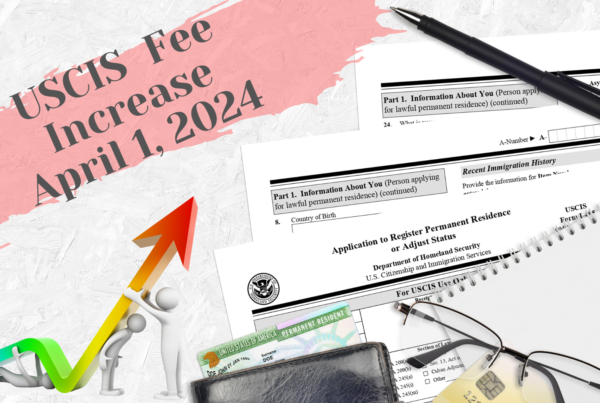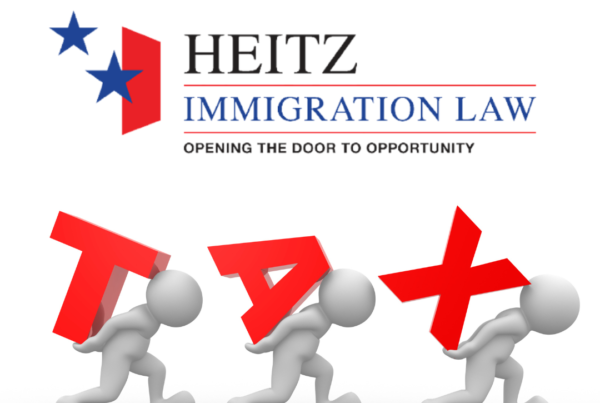If you own a business in your home country and you wish to set up an affiliate business in the United States, then you may qualify for the L-1 visa. This enables you or an employee of the foreign company to work for the U.S. affiliate for a specified period of time. Your family (spouse and unmarried children under 21) may accompany you and your spouse will be eligible for a work permit. As with employment visas generally, the requirements for this are very stringent.
First, the key consideration is going to be whether the foreign business entity has a “qualifying relationship” with the U.S. business entity. This could be either as a parent entity where the foreign business has a subsidiary in the U.S (for example, the foreign entity owns more than 50% of the U.S. entity and thus is a majority owner), or the U.S. entity could be a branch/division of the foreign entity. The business structure requirements can get complex, therefore, it is best to consult with an immigration attorney familiar with L-1 visas to discuss your situation.
Second, the employee working for the U.S. entity must be in a “qualifying position.” This would be either as a manager/executive (L-1A) or as an employee that has “specialized knowledge” (L-1B) which requires knowledge beyond the ordinary within the industry.
Other requirements are that the person who seeks an L-1 visa must have worked for the foreign company for at least one year out of the last three years. As well, an extensive amount of documentation will be required to prove there is enough capital and resources committed to by the foreign company in this endeavor into the U.S. Evidence such as bank statements, accountant’s reports, and tax filings will be required. Furthermore, a physical office space must be secured in the U.S. to support the employee and the business.
As with employment visas of this type, the L-1 allows the employee’s spouse and unmarried children under 21 to file for L-2 status so that they can accompany the employee, however, only the spouse will be able to file for a work permit. The child under 21 can live and go to school in the U.S. but will not be permitted to work. Let your family know up front what the limitations are so that there are no surprises upon arrival!
And now for the answer to the million dollar question: Yes, this type of visa can even lead to a green card. The L-1 visa holder is considered to have “dual intent,” meaning that he or she may apply for a green card, if they qualify, without jeopardizing their L-1 status. And for the L-1A visa holder, no labor certification is needed, something that saves a whole lot of paperwork and expense (most employment-based green card applications first require the employer to file a labor certification which certifies that no qualified U.S. worker is available for this position).
A consideration to keep in mind when pursuing the green card option is that the U.S. company will have to prove that it is doing well enough to financially support the employee and their family members in order for them to be eligible for a green card. This is the part that can get challenging and it is therefore recommended to seek the help of an immigration attorney to figure out what your chances are of qualifying for a green card based on your employment with the U.S. subsidiary.
The maximum time a person can remain in the U.S. under the L-1 visa is 7 years (L-1A is 7 years, L-1B is 5 years). Extensions will need to be filed as the initial grant will only be for one year if it’s a new company under L-1A or 3 years if it’s for the L-1B. Once the L-1 visa holder completes their stay, they must leave and go back to work for the foreign business for at least one year before being eligible to apply for another L-1 visa again.
The L-1 visa provides a wonderful opportunity for a small foreign business to expand into the U.S. by sending a qualified manager or executive for the purpose of establishing and running the subsidiary or branch office. The L-1 visa is also used by multi-national companies who wish to bring their own management and specialized-knowledge employees to their U.S. affiliate offices.
By no means is this whole process an easy thing to accomplish. However, if granted, the rewards can be great for the individual and their family. By establishing a subsidiary entity of your business in the United States, you can provide a gateway of opportunity for yourself and the company in both locations – in the U.S. and back home. After a few years under L-1 status, you will be able to determine whether it’s working for you to the extent that you wish to continue with the U.S. business and maybe even see it through to gaining permanent legal status and eventually citizenship for yourself and your family.
Image credit: Stockimages by FreeDigitalPhotos.net









